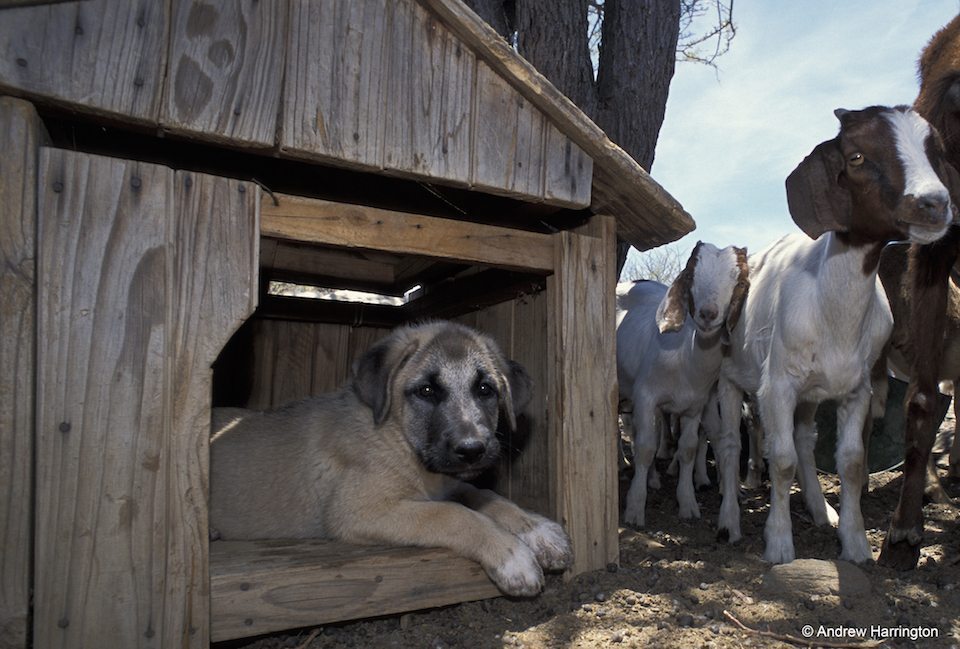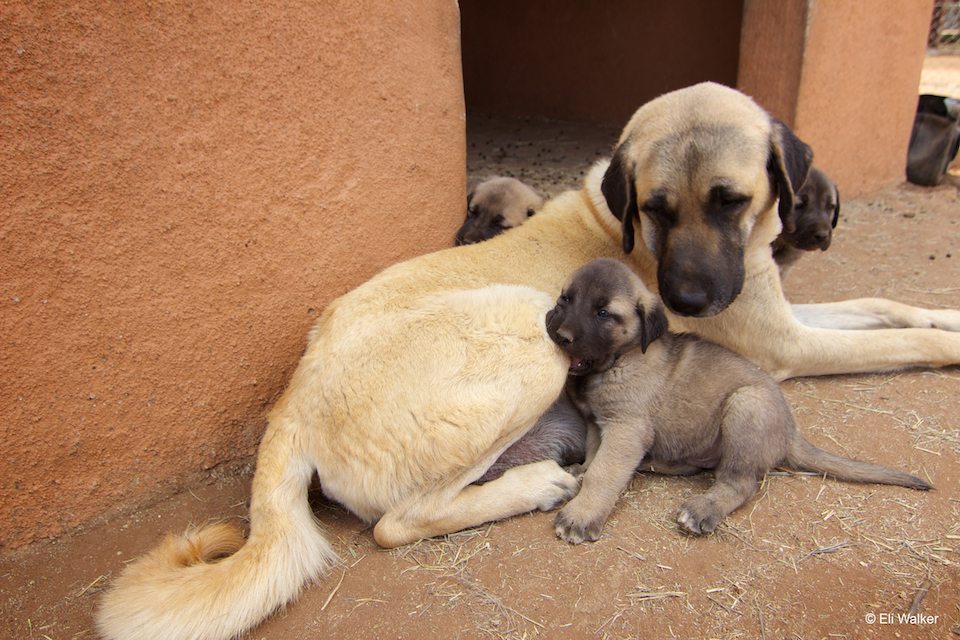Livestock Guarding Dog Program
The Livestock Guarding Dog Program was first introduced by CCF Namibia in 1994, and has been one of their most successful programs to help save the wild cheetah. This non-lethal predator control method has helped farmers to understand that humans and wildlife can co-exist, and has resulted in many fewer cheetah deaths. Since the LGD program began, more than 750 dogs have been placed in Namibia, South Africa and Tanzania.
About the Breed
The Kangal and Anatolian Shepherd were selected as the dog breeds for the CCF program. Originally from Turkey, these dogs are independent thinkers, very smart, and have been at work protecting livestock for over 6,000 years. They were also chosen for their tolerance to a harsh climate and terrain similar to that of Namibia.
About the Livestock Guarding Dog Program
These special dogs, raised and bred on the model farm at CCF Namibia, are given free or for a nominal fee to Namibian farmers when the puppies are about 8 weeks old.
The puppies bond with their herds and bark loudly whenever they see a cheetah or predator, scaring the aggressor away.
Most farmers report an 80% to 100% reduction in livestock kills by cheetahs and other predators.
Farmers no longer need to kill cheetahs (or other predators) in order to protect their livestock and their livelihood. Similar programs have now been launched in Botswana, South Africa and Tanzania.
What does the program entail?
The LGD program is labour-intensive at all four stages:
- Research – Farmers are evaluated for their suitability to take on a dog, predation causes are studied, and genetic and physiological research is conducted.
- Dog Care & Placement – This consists of breeding, training, and placement of 40-50 livestock guarding dogs per year on Namibian farms.
- Farmer Support & Follow-up Care – CCF visits and surveys owners of working dogs to monitor the animal’s health and ongoing veterinary care.
- Education – Farmers receiving training to integrate the dog into their farm and other predator-friendly livestock and wildlife management techniques.
Social and Economic Benefits
Having a guarding dog on the farm enables children to go to school instead of taking care of their family’s herds. These types of program are important, not only in protecting the cheetah, but also in improving farmers’ livelihood and that of the next generation.
Namibians who once viewed cheetah as worthless vermin now proudly declare their country to be “The Cheetah Capital of the World”. ~ Dr. Laurie Marker.
How you can help?
Through the generosity of Canadian donors, we have been able to provide significant funding support to CCF Namibia’s Livestock Guarding Dog Program. Each dog costs CCF over $1,000 a year in care covering training, food, vaccinations and new owner support.

